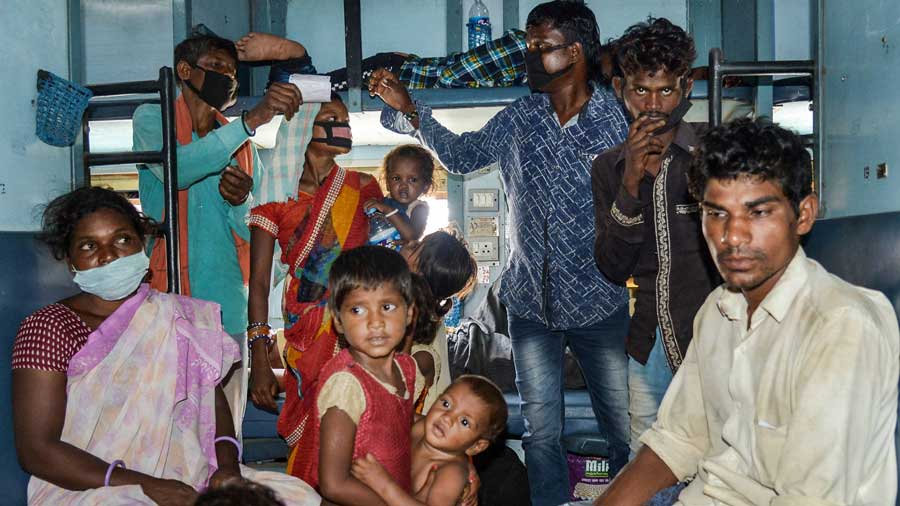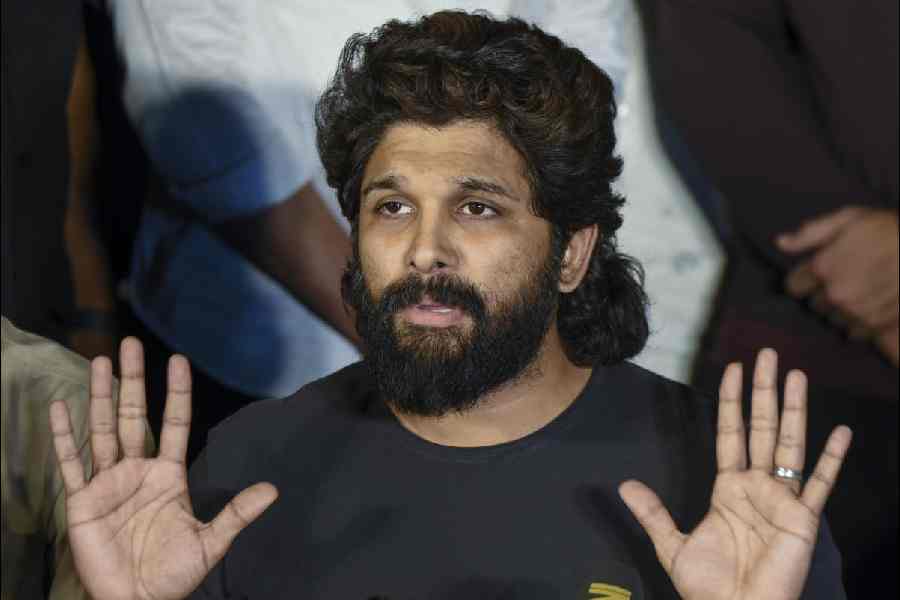A parliamentary committee is set to advise the government to register migrant labourers in their home and destination states so that they can get social security cover, at a time the pandemic-induced lockdown has brought into sharp focus the vulnerability of the workers during emergencies.
Bhartruhari Mahtab, the chairperson of the Parliamentary Standing Committee on Labour and Employment, told The Telegraph on Tuesday that the panel would recommend that the provision of registration be included in the Code on Social Security Bill under the committee’s consideration.
“We are examining social security cover for migrant workers under the bill. We will recommend registration of migrant workers in both source and destination states. This will also help in proper implementation of the one-nation-one-ration-card scheme,” Mahtab, a senior leader of Odisha chief minister Naveen Patnaik’s BJD, said.
The recommendations of the committee are not binding on the government.
The Inter-State Migrant Workmen (Regulation of Employment and Conditions of Services) Act, 1979, does provide for the registration of migrant workers but remained one of the most shoddily implemented laws. Now, this law will be subsumed under the Code on Social Security Bill, which does not have any provision for registration of migrant workers.
Because of the tardy implementation of the Inter-State Migrant Workmen Act, there were hardly any records on migrant workers that the government could use in reaching out to and helping them during the lockdown.
With migrant workers losing their jobs and left stranded with their contractors abandoning them, governments found it difficult to come to the aid of the labourers with food and other social security benefits in the absence of data.
Labour economists, however, said that mere registration of migrant workers was not enough to ensure social security for the working class. Prof. Santosh Mehrotra, chairperson of the Centre for Labour at Jawaharlal Nehru University, said India would have 140 million people over the age of 60 by 2040 and they would need social security. He said unorganised sector workers constituted 90 per cent of the 466 million-strong workforce in India.
“In the present form, the (Code on Social Security) Bill has no specific provision on social security. It is silent on many things, including contract workers and universal pension,” Mehrotra said.
Three bills on labour reforms introduced by the labour ministry are pending in Parliament. The Parliamentary Standing Committee on Labour and Employment has submitted its reports on the Occupational Safety, Health and Working Condition Code Bill and the Industrial Relations Code Bill. It is likely to submit its report on the Social Security Code Bill in July.
The 1979 law that the government is seeking to do away with made it binding on establishments and contractors to maintain records of migrants they employ, the wages paid to them and the nature of work assigned to them. The records and facilities are to be inspected by government officials. None of these were, however, implemented properly by successive governments.
Labour economist Ravi Srivastava said the pandemic had exposed the vulnerability of the millions of workers who do not have access to social security.
Prof. Srivastava said the National Commission for Enterprises in the Unorganised Sector had proposed that there should be a statutory social security net for all workers in terms of health protection, life cover, old age and maternity benefits.
However, the Unorganised Sector Social Security Act, 2008, did not incorporate such a provision, nor does the Social Security Code Bill.
“There is a provision for a social security board for the unorganised sector but it (bill) does not provide for mandatory registration of workers or compulsory social security coverage. For formal sector workers, the draft code seeks to provide security to regular employees only,” Srivastava said.
“The existing security for temporary and contract workers in registered establishments has been removed and they will be treated like other informal workers with no mandatory social security. There should be universal registration, a minimum level of universal social entitlement and complete portability of social security entitlements,” Srivastava said.
Asked about the lack of social security for all, Mahtab said: “The (three) codes have to be seen in totality. They have provisions for unorganised sector workers too.”










